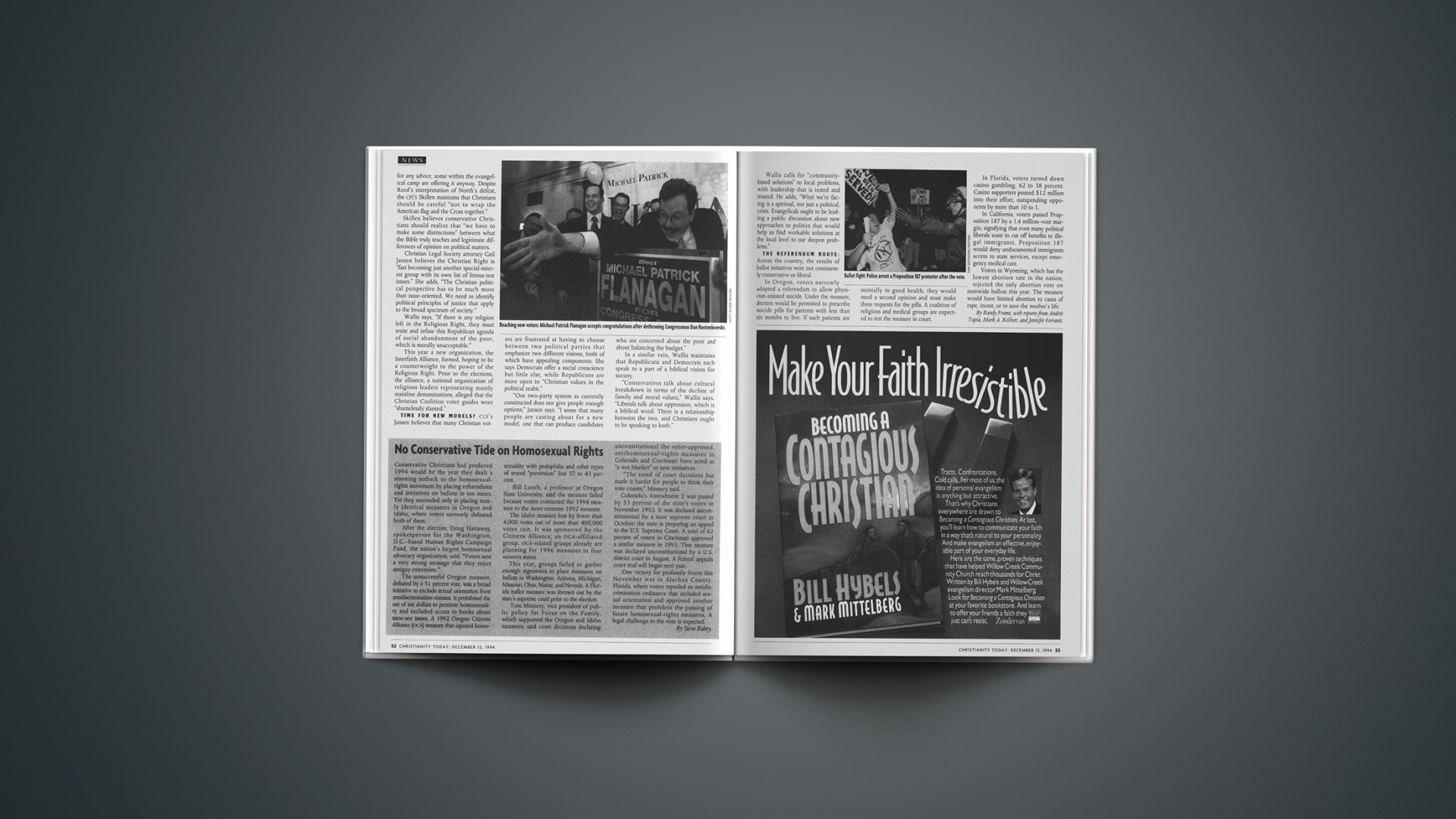Conservative Christians had predicted 1994 would be the year they dealt a stunning setback to the homosexual- rights movement by placing referendums and initiatives on ballots in ten states. Yet they succeeded only in placing nearly identical measures in Oregon and Idaho, where voters narrowly defeated both of them.
After the election, Doug Hattaway, spokesperson for the Washington, D.C.-based Human Rights Campaign Fund, the nation’s largest homosexual advocacy organization, said, “Voters sent a very strong message that they reject antigay extremism.”
The unsuccessful Oregon measure, defeated by a 51 percent vote, was a broad initiative to exclude sexual orientation from antidiscrimination statutes. It prohibited the use of tax dollars to promote homosexuality and excluded access to books about same-sex issues. A 1992 Oregon Citizens Alliance (OCA) measure that equated homosexuality with pedophilia and other types of sexual “perversion” lost 57 to 43 percent.
Bill Lunch, a professor at Oregon State University, said the measure failed because voters connected the 1994 measure to the more extreme 1992 measure.
The Idaho measure lost by fewer than 4,000 votes out of more than 400,000 votes cast. It was sponsored by the Citizens Alliance, an OCA-affiliated group. OCA-related groups already are planning for 1996 measures in four western states.
This year, groups failed to gather enough signatures to place measures on ballots in Washington, Arizona, Michigan, Missouri, Ohio, Maine, and Nevada. A Florida ballot measure was thrown out by the state’s supreme court prior to the election.
Tom Minnery, vice president of public policy for Focus on the Family, which supported the Oregon and Idaho measures, said court decisions declaring unconstitutional the voter-approved, antihomosexual-rights measures in Colorado and Cincinnati have acted as “a wet blanket” to new initiatives.
“The trend of court decisions has made it harder for people to think their vote counts,” Minnery said.
Colorado’s Amendment 2 was passed by 53 percent of the state’s voters in November 1992. It was declared unconstitutional by a state supreme court in October; the state is preparing an appeal to the U.S. Supreme Court. A total of 62 percent of voters in Cincinnati approved a similar measure in 1993. That measure was declared unconstitutional by a U.S. district court in August. A federal appeals court trial will begin next year.
One victory for profamily forces this November was in Alachua County, Florida, where voters repealed an antidiscrimination ordinance that included sexual orientation and approved another measure that prohibits the passing of future homosexual-rights measures. A legal challenge to the vote is expected.
Copyright © 1994 Christianity Today. Click for reprint information.










